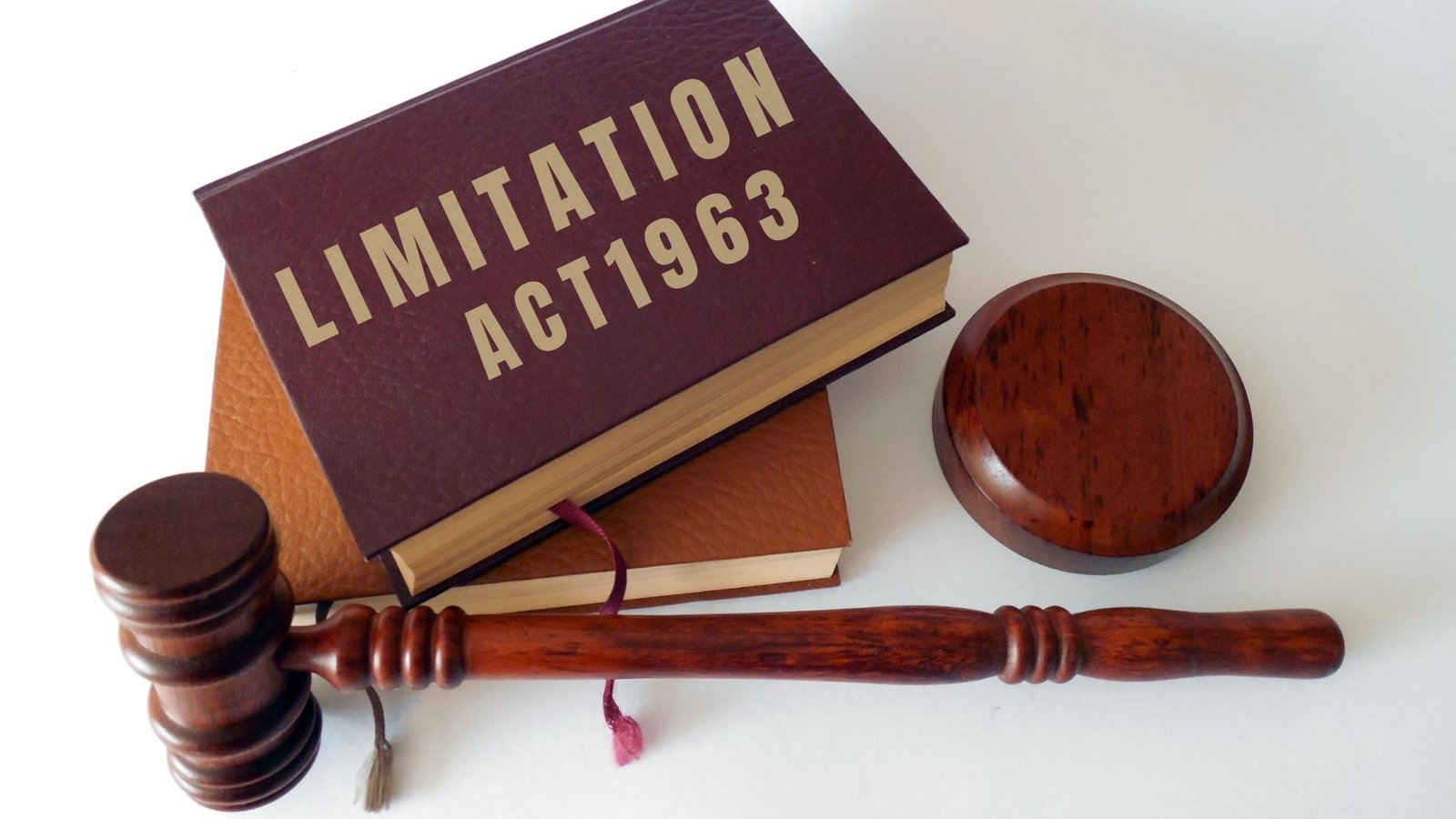On this page you will read detailed information about Cheque Bounce Law in India.
As you are conducting business in India, you must understand the cheque bounce law to avoid legal issues. This law, aimed at ensuring cheque payment reliability, stipulates penalties for dishonoured cheques. When your cheque bounces due to insufficient funds or other reasons, you may face imprisonment up to two years and/or a fine up to twice the cheque amount. To avoid breaking this law, ensure sufficient account balance, proper cheque writing, and inform the payee if you anticipate issues. Learning the intricacies of this law will help protect your business from litigation. Moving forward with this knowledge, you can confidently write cheques for transactions.
What Is a Cheque Bounce?
The Process of a Bounced Cheque
- A cheque bounce, also known as a dishonoured cheque, occurs when a cheque is presented for payment and the payment of the cheque is refused by the bank due to insufficient funds in the bank account of the cheque issuer.
- There are two parties involved in a cheque transaction – (i) the drawer (the person who writes the cheque), and (ii) the payee (the person who receives the cheque).
- When a cheque is dishonoured, the bank will issue a “return memo” which will contain the reason for dishonouring the cheque, usually insufficient funds in the drawer’s account.
Legal Consequences
- According to the Negotiable Instruments Act 1881, a dishonoured cheque is a criminal offence and is punishable with imprisonment up to two years, monetary fine, or both.
- Section 138 of the Act deals with penalties for cheque bounce, while Section 141 deals with offences committed by companies.
- The payee or cheque holder has up to 30 days from the date of the cheque bounce to file a legal notice to the cheque issuer demanding payment within 15 days. If payment is still not made, the payee can initiate legal proceedings under Section 138.
- It is important for the drawer of the cheque to immediately arrange funds to avoid legal consequences if informed about cheque dishonour. Maintaining sufficient balance can prevent cheque bounce scenarios.
So in essence, a cheque bounce occurs when there are insufficient funds to honour the cheque resulting in refusal of payment. This has serious legal repercussions for the cheque issuer. Maintaining adequate funds and financial discipline is key to avoiding cheque dishonour situations.
Key Provisions of Cheque Bounce Law in India
Understanding the key provisions of cheque bounce law in India is important to know your rights and obligations as an account holder. This law, known as the Negotiable Instruments Act, 1881, covers the penalties for dishonour of cheques due to lack of funds or a stop payment instruction.
- The Act stipulates that a person can be imprisoned for up to 2 years and/or asked to pay a fine up to twice the cheque amount for the first offence of a cheque bounce.
- Subsequent offence can lead to imprisonment up to 7 years and a fine up to three times the cheque amount.
- The case needs to be filed within 30 days of receiving the cheque bounce memo from the bank.
- The payee of the cheque has to send a legal notice to the drawer of the cheque within 30 days of the cheque bounce date.
- If the drawer fails to make the payment within 15 days of receiving the notice, then a complaint can be filed under Section 138 of the Negotiable Instruments Act.
It is prudent to avoid cheque bounces by maintaining sufficient funds and keeping track of issued cheques. However, mistakes can happen. Being aware of the law can help both parties handle the situation through proper communication and payment resolution. Consulting a legal expert is also advisable to understand the best course of action in case of any disputes.
Consequences of Cheque Bounce as Per Indian Law
- As per Section 138 of the Negotiable Instruments Act, 1881, bouncing a cheque is a criminal offence in India. The consequences for dishonouring of a cheque are severe.
- If your cheque bounces due to insufficient funds, you will receive a legal notice from the payee asking you to make the payment within 30 days. This allows you the opportunity to rectify the non-payment amicably.
- However, if the payment is still not made within the 30 day period, the payee can initiate criminal proceedings by filing a criminal complaint under Section 138. On conviction, you may face imprisonment up to 2 years and/or a monetary fine up to twice the cheque amount.
- Apart from imprisonment and fine, dishonour of cheque also attracts civil liability. You can be made liable to pay the cheque amount along with interest and legal expenses incurred for recovery to the payee. This liability is also independent of the result of criminal proceedings against you.
- Multiple cheque bounce can have serious repercussions. If you bounce cheques frequently, you risk being barred from issuing cheques in the future, making cash the only option for payments. You may also find it difficult to open bank accounts or get loans in the future.
- It is therefore critical not to issue cheques without sufficient balance. Always keep a buffer in your account to provide for unforeseen expenditures. If unable to honour a cheque, communicate proactively with the payee to prevent legal action. Using post-dated cheques can also help avoid cheque bounce due to temporary lack of funds.
By taking suitable precautions and financial planning, cheque bounce can be avoided, preventing legal hassles and financial losses. Maintaining proper communication and honesty with payees can also help resolve non-payments faster out of court.
In the previous post, we had shared information about Understanding the Limitation Act 1963: A Legal Guide, so read that post also.
Defenses Available Against Cheque Bounce Complaints
When facing a cheque bounce complaint, there are some possible defenses available that could prove you are not liable for the dishonored cheque:
- Prove the cheque was incorrectly dishonored: You can claim that the cheque should not have bounced and was dishonored wrongly by the bank due to some technical error or oversight. Gather evidence to support your claim.
- Show lack of legally enforceable debt or liability: Demonstrate that the cheque was issued voluntarily without an existing, legally enforceable debt or obligation. This can refute the charge of issuing it despite insufficient funds.
- Establish cheque was post-dated: If you had informed the payee that adequate funds were not currently available and requested the cheque to only be presented at a later date, this can negate charges.
- Prove cheque was issued under coercion: You may claim the cheque was issued under threat, force or coercion, making it legally invalid. However, sufficient evidence is required to substantiate such an assertion.
- Demonstrate stopping payment as per agreement with payee: If a post-dated cheque’s payment was mutually stopped by the parties, producing the associated formal communication can support your defense.
- Show cheque was altered or tampered with: Proving unauthorized material alteration of payment amount, date or payee details after cheque issuance could absolve your liability.
- While the above defenses could potentially apply, their acceptance is subject to adequate supportive documentation and evidence as well as the discretion of the court. Consulting a lawyer specializing in banking and cheque bounce cases is advisable. Timely action is essential.
FAQs on Cheque Bounce Law in India
A cheque bounce or dishonor happens when:
I) There are insufficient funds in the drawer’s account when presented for payment.
II) The amount exceeds the arranged overdraft limit sanctioned for the account.
III) There is a stop payment instruction issued without any valid reason.
IV) There is any material alteration without the drawer’s consent.
The penalty for cheque bounce under Section 138 is:
I) Imprisonment up to 2 years
II) Monetary fine up to twice the amount of the bounced cheque
The process needs to be completed within 30 days from the date of receiving the bounced cheque memo:
1. Send a legal demand notice to the drawer within 30 days.
2. If payment is not received within 15 days, file a criminal complaint under Section 138 within the next 30 days.
The limitation period for taking cognizance of the complaint is one month from the date of filing the complaint.
The accused can defend themselves by showing proof that:
I) They had sufficient funds when the cheque was presented.
II) It was presented at least once before the complaint with sufficient funds.
III) The complainant had issued notice in excess of the stipulated 30 days.
Seeking legal guidance can help determine the best course of action in cheque bounce cases. The law aims to ensure cheque transactions remain trustworthy.
Conclusion
As we have seen, cheque bounce law in India allows for both civil and criminal remedies against the drawer of the cheque in case it bounces. Being aware of the provisions under the Negotiable Instruments Act can help you avoid legal hassles if you issue or receive cheques. Exercising due diligence by ensuring adequate balance and proper cheque issuance processes is key. Seeking legal recourse on dishonoured cheques also requires following certain procedures. We hope this article has helped enhance your understanding of cheque bounce law. You can now make informed decisions to stay compliant as well as protect your interests when issuing, receiving or pursuing action on dishonoured cheques.
Disclaimer
The information and services on this website are not intended to and shall not be used as legal advice. You should consult a Legal Professional for any legal or solicited advice. While we have good faith and our own independent research to every information listed on the website and do our best to ensure that the data provided is accurate. However, we do not guarantee the information provided is accurate and make no representation or warranty of any kind, express or implied, regarding the accuracy, adequacy, validity, reliability, availability, or completeness of any information on the Site. UNDER NO CIRCUMSTANCES SHALL WE HAVE ANY LIABILITY TO YOU FOR ANY LOSS OR DAMAGE OF ANY KIND INCURRED AS A RESULT OR RELIANCE ON ANY INFORMATION PROVIDED ON THE SITE. YOUR USE OF THE SITE AND YOUR RELIANCE ON ANY INFORMATION ON THE SITE IS SOLELY AT YOUR OWN RISK. Comments on this website are the sole responsibility of their writers so the accuracy, completeness, veracity, honesty, factuality and politeness of comments are not guaranteed.
So friends, today we talked about Cheque Bounce Law in India, hope you liked our post.
If you liked the information about Cheque Bounce Law in India, then definitely share this article with your friends.
Knowing about laws can make you feel super smart ! If you find value in the content you may consider joining our not for profit Legal Community ! You can ask unlimited questions on WhatsApp and get answers. You can DM or send your name & number to 8208309918 on WhatsApp








